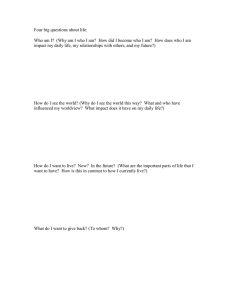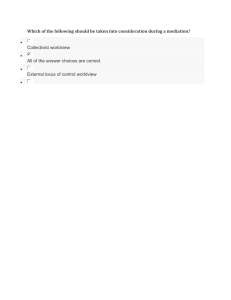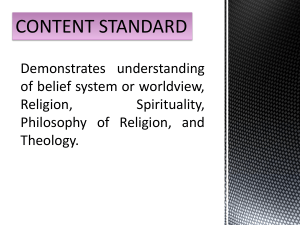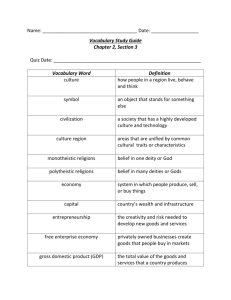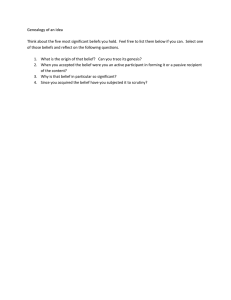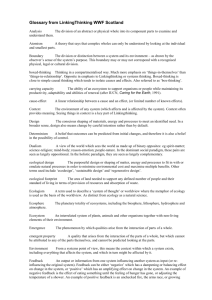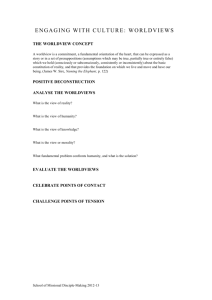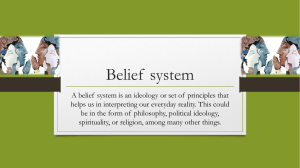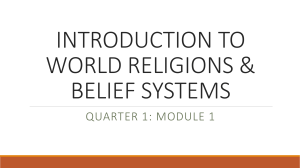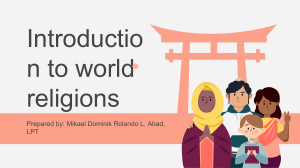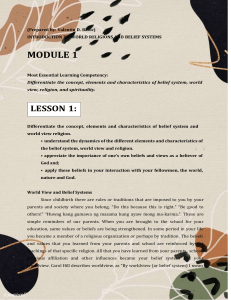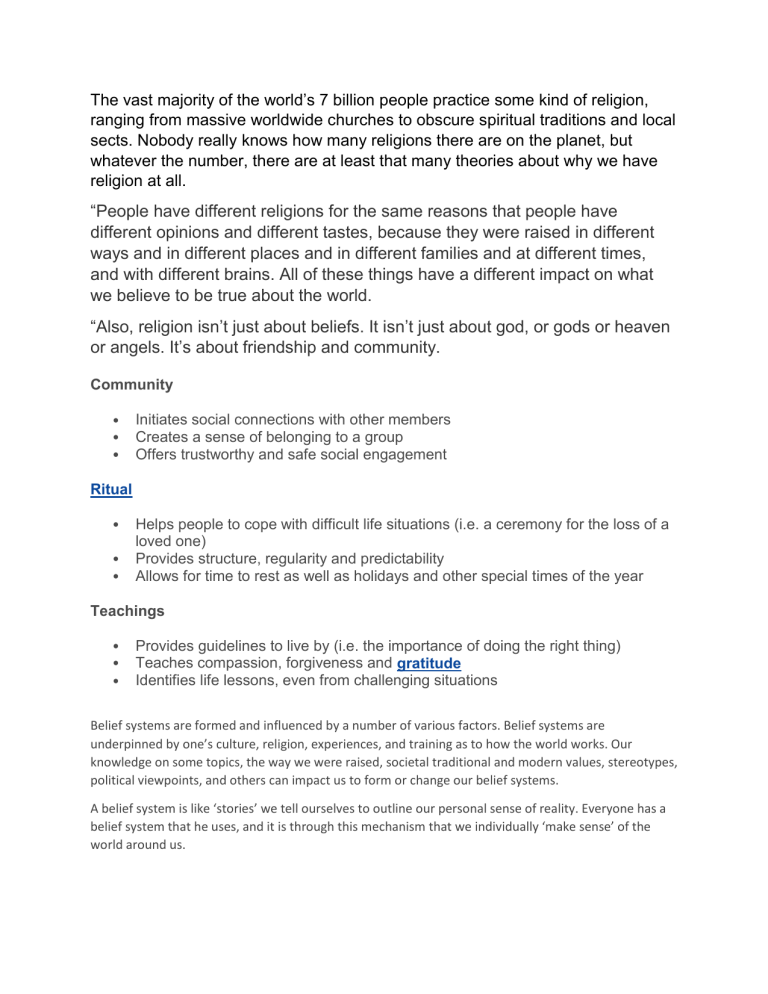
The vast majority of the world’s 7 billion people practice some kind of religion, ranging from massive worldwide churches to obscure spiritual traditions and local sects. Nobody really knows how many religions there are on the planet, but whatever the number, there are at least that many theories about why we have religion at all. “People have different religions for the same reasons that people have different opinions and different tastes, because they were raised in different ways and in different places and in different families and at different times, and with different brains. All of these things have a different impact on what we believe to be true about the world. “Also, religion isn’t just about beliefs. It isn’t just about god, or gods or heaven or angels. It’s about friendship and community. Community Initiates social connections with other members Creates a sense of belonging to a group Offers trustworthy and safe social engagement Ritual Helps people to cope with difficult life situations (i.e. a ceremony for the loss of a loved one) Provides structure, regularity and predictability Allows for time to rest as well as holidays and other special times of the year Teachings Provides guidelines to live by (i.e. the importance of doing the right thing) Teaches compassion, forgiveness and gratitude Identifies life lessons, even from challenging situations Belief systems are formed and influenced by a number of various factors. Belief systems are underpinned by one’s culture, religion, experiences, and training as to how the world works. Our knowledge on some topics, the way we were raised, societal traditional and modern values, stereotypes, political viewpoints, and others can impact us to form or change our belief systems. A belief system is like ‘stories’ we tell ourselves to outline our personal sense of reality. Everyone has a belief system that he uses, and it is through this mechanism that we individually ‘make sense’ of the world around us. Worldview is more than just an explanatory ‘lens,’ one’s worldview also functions as his or her life’s road map or compass. A worldview provides a perspective that shapes, influences, and even directs an individual’s entire life. As we behave as we believe, our worldviews guide the formation of the values that influence our decisions and actions. A worldview thus acts as a map that provides directions guiding our life decisions. Thus, a worldview is a comprehensive system of beliefs with answers for a wide range of questions including the following: What are humans, why are we here, and what is our purpose in life? What are our reasons for being and goals for life? Why are we the way we are? Why do we face the challenges we do? It is believed that spirituality affords a fully integrated view to life, that is, that it comprises all aspects of being human and is a means of experiencing life. Hence, some believe that another essential element of spirituality is finding meaning and purpose in life. The pursuit to find out meaning in life arises as a central theme in spirituality, with the relationship to self, others, and God contributing to its discovery.
